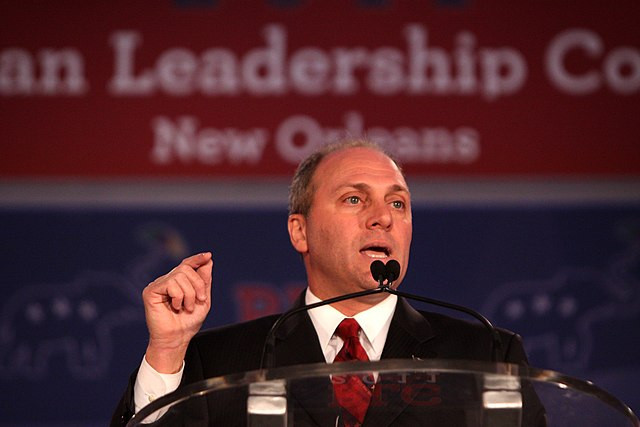In a surprising turn of events, House Majority Leader Steve Scalise announced his withdrawal from the race for House Speaker, further intensifying the leadership crisis within the House GOP. This decision came on the heels of a closed-door meeting with fellow House Republicans, where Scalise emphasized the need for unity within the party.
The Louisiana Republican's decision to step aside was both unexpected and significant, especially considering that just a day prior, he had secured the GOP conference's nomination over Rep. Jim Jordan with a vote of 113-99. However, Scalise's nomination was met with immediate resistance from a faction within the party, making it clear that they would not support him for the role of Speaker. This internal division has left the House GOP in a state of uncertainty, with no clear candidate capable of securing the necessary 217 votes to assume the position.
Addressing the media after his announcement, Scalise stressed the importance of setting aside individual political agendas for the greater good of the country. He stated, "If you look at where our conference is, there's still work to be done. Our conference still has to come together and is not there. There are still some people that have their own agendas, and I was very clear we have to have everybody put their agendas on the side and focus on what this country needs. This country is counting on us to come back together."
Scalise's withdrawal has left the GOP scrambling for a viable candidate. While many members have shown support for Rep. Jim Jordan, the Ohio Republican's loss to Scalise in the nominating contest has raised doubts about his potential election as Speaker. Furthermore, Scalise refrained from endorsing any candidate, emphasizing the need for a leader who would prioritize the country over personal interests.
The leadership vacuum in the House GOP comes at a critical time, following the historic ouster of former House Speaker Kevin McCarthy. The California Republican was removed from his position in a 216-210 vote, leading to the current scramble for a successor. As the GOP grapples with this leadership crisis, the House remains in a state of "speakerless paralysis," with no clear path forward.
The situation has prompted some members to consider expanding the powers of interim Speaker Patrick McHenry of North Carolina, allowing the House to pass crucial legislation. This move indicates the level of desperation within the GOP as they struggle to find a unified voice.
The leadership challenge has also sparked conversations among House Democrats, who have been exploring potential collaborations with Republicans. Some Democrats have shown interest in working with House Rules Chairman Tom Cole of Oklahoma, though any such alliance would come with significant conditions.
As the GOP faces this unprecedented challenge, the need for unity and decisive leadership has never been more critical. The party's ability to navigate this crisis will undoubtedly shape its future and influence its role in the broader political landscape.




